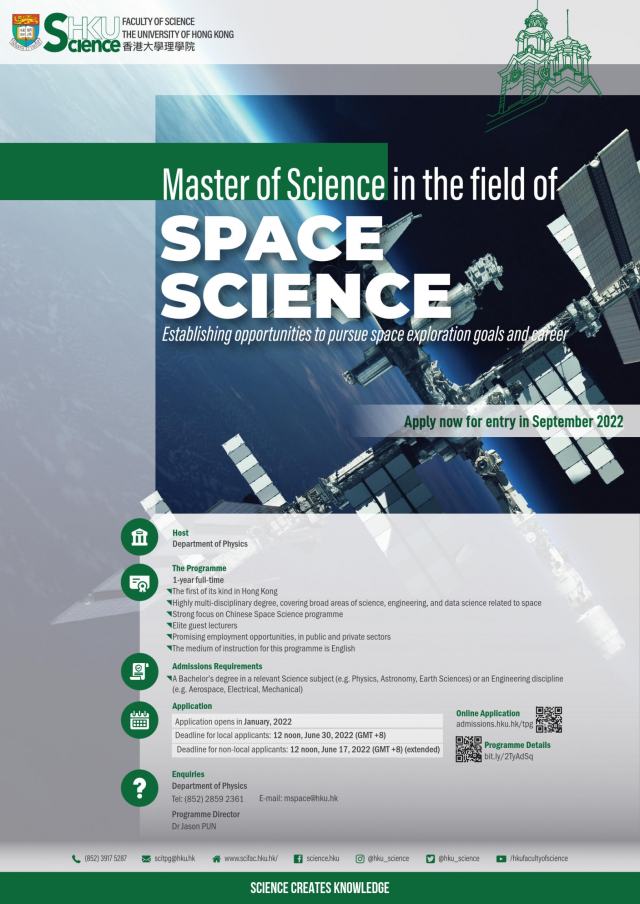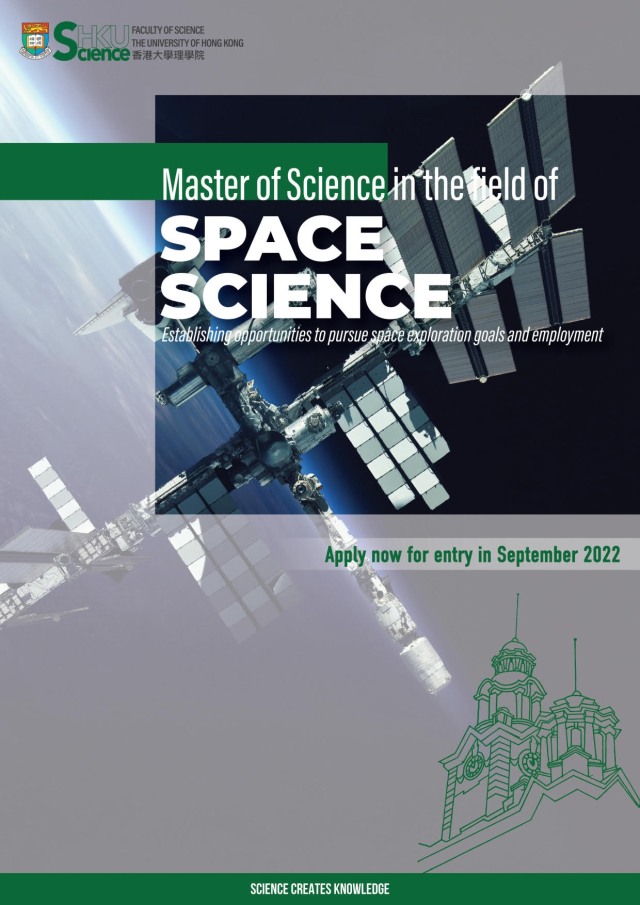Target Students
**This programme is not open to admission in 2024-25**
The Department of Physics is offering an exciting Taught Postgraduate Master of Science in the field of Space Science. Modern Space Science is a highly multi-disciplinary field that encompasses a broad range of sub-disciplines, from astrophysics, to aerospace engineering, electronics, remote sensing, and space exploration. China has recently been investing heavily in Space Science, launching 39 satellites in 2018 alone, over twice as many as in 2017 and more than any other country in the world. Given its status as a global metropolis, its strong international links, and its location in the “Greater Bay Area” (GBA), Hong Kong is ideally placed to capitalize on the growth of China in the area of Space Science. Our programme taps into our strengths in high-energy astrophysics, planetary sciences, statistics, and engineering, while leveraging our strong connections with elite Mainland and global partners. Our MSc will provide a solid foundation to enter this exciting field, with promising employment opportunities both in the public and private sectors, in China and worldwide.
For details, please visit the Faculty of Science website: https://www.scifac.hku.hk/prospective/tpg/SpaceScien






